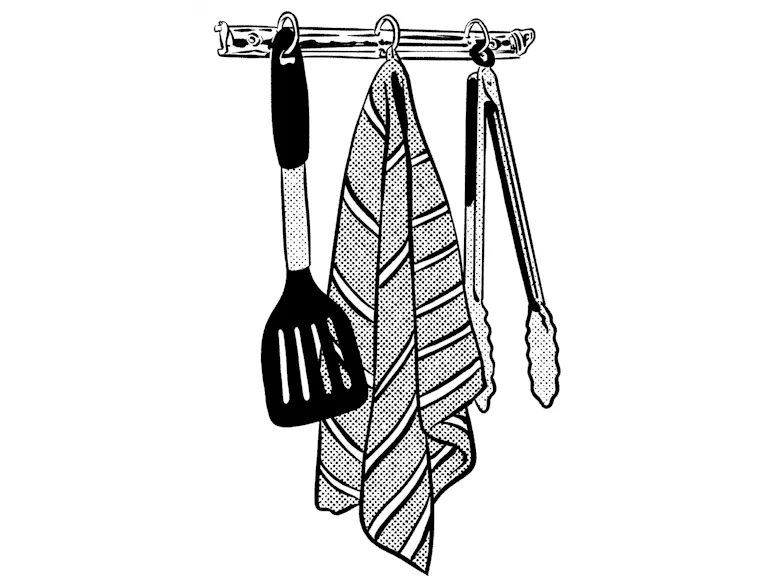_We may earn revenue from the products available on this page and participate in affiliate programs. Learn more ›
_
Horace Gardner ‘Tap’ Tapply was the distilled quintessence of Yankee outdoorsman, a flyfisherman and grouse hunter to the bone, but Tap’s Tips had universal appeal. Over 35 years, he probably wrote 2,500 of them, each a perfect creation of 40 to 50 words. Wreathed in pipe smoke, throwing erratic punches at a typewriter, the basement floor littered with yellow copy paper, Tap turned out little jewels of outdoor wisdom, never more or less than five lines, writing with the same discipline as a Japanese haiku poet. Herewith, a collection of Tap’s Tips from the magazine’s past. —David E. Petzal
TO make sure you can always find a swivel when you need one, string a dozen or so on a large safety pin and fasten the pin to the underside of your shirt pocket flap.
AFTER a few days in camp, deer hunters begin to smell very unlike a rose. This can be a factor in hunting success as deer have keen noses and human BO travels far on a light breeze. For that reason, smart hunters defy camp custom and wash often. Some even scent their clothing with crushed apples.
HERE’S another fish cleaning trick: Scrape off the scales while holding the fish under water in a dishpan. The scales come off easier, and don’t fly all over the kitchen.
ALWAYS sneak up on a pothole from the upwind side—that is, with the wind behind you. Ducks invariably flush into the wind, so they will start your way as they get off the water. Even if they turn immediately, you will gain a few precious yards in which to get off a shot or two.
A small jar of petroleum jelly belongs in every outdoorsman’s kit. It can be used as a lubricant, rust preventative, medication for insect bites, water repellent, even as a floatant for flies and fly lines. The man who invented Vaseline even ate the stuff.
SAVE those plastic bags that practically everything is sold in these days, and take a few when you go deer hunting. You will find them useful for packing the luncheon sandwiches, for keeping your seat dry while watching a runway, and, on the lucky day, for carrying the deer liver back to camp.
AN old 3-ring binder with the covers removed makes a handy gadget for keeping camp cooking utensils together in the packbasket or cook box. A. Weber of Edmonton, Alberta, says each ring will hold a couple of large forks, spoons, or pancake floppers.
ICE cubes make sporty plinking targets. They shatter as explosively as glass when you hit them but create no litter that must be picked up later. They also encourage careful marksmanship, because every time you miss the target, it melts down a little smaller.
TROUT eggs make excellent bait for spring-spawning rainbows. If you can’t get the real thing, cut small round balls from a pink dishwashing sponge. They’re almost as good, and they stay on the hook better.
HAVE you ever discovered a grouse that has weathered out a severe winter storm by burying itself in a snowdrift? Look for a slight depression in the snow and prod it with a stick. If you’re lucky, you may get a faceful of exploding snow and feathers, along with an experience you will always remember.
FORGET your guide is a hired hand. If you meet him on equal grounds, he may turn out to be the best friend you ever had. And chances are that you’ll experience a brand of sport you’ve never thought possible.
IF your dog keeps tipping over his water, use a large angel-food cake pan, which has a hole in the center. Just place the pan over a wooden stake driven securely into the ground. The stake anchors the pan firmly so that even the most excitable dog can’t knock it over.
Check out the Best Old-School Fishing Tips
, the Best Old-School Hunting Tips
, _and the complete F&S Classics series
._ Or _read more F&S+
stories._






